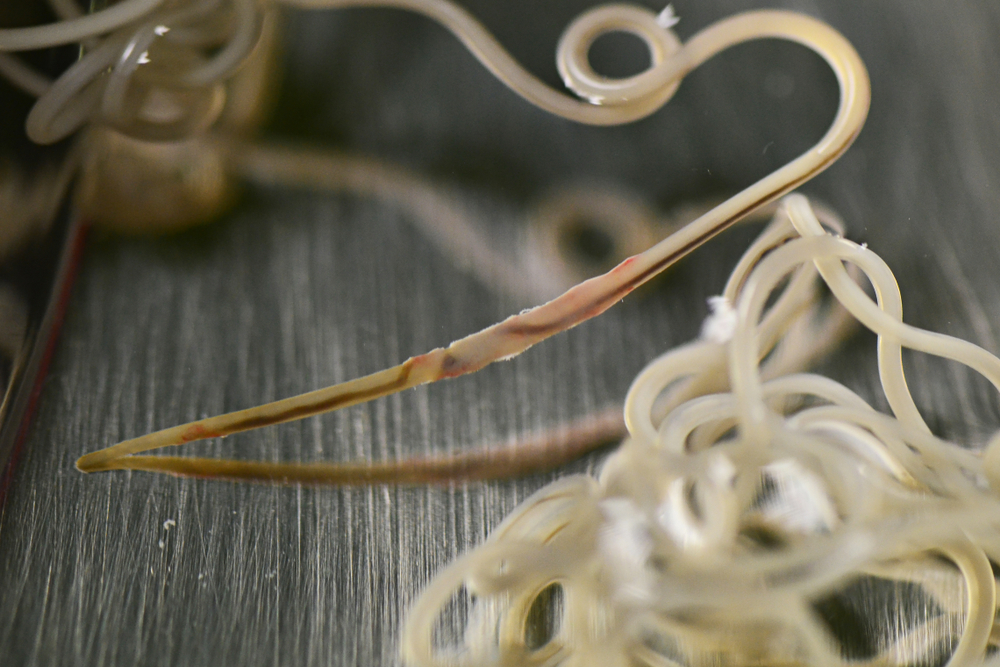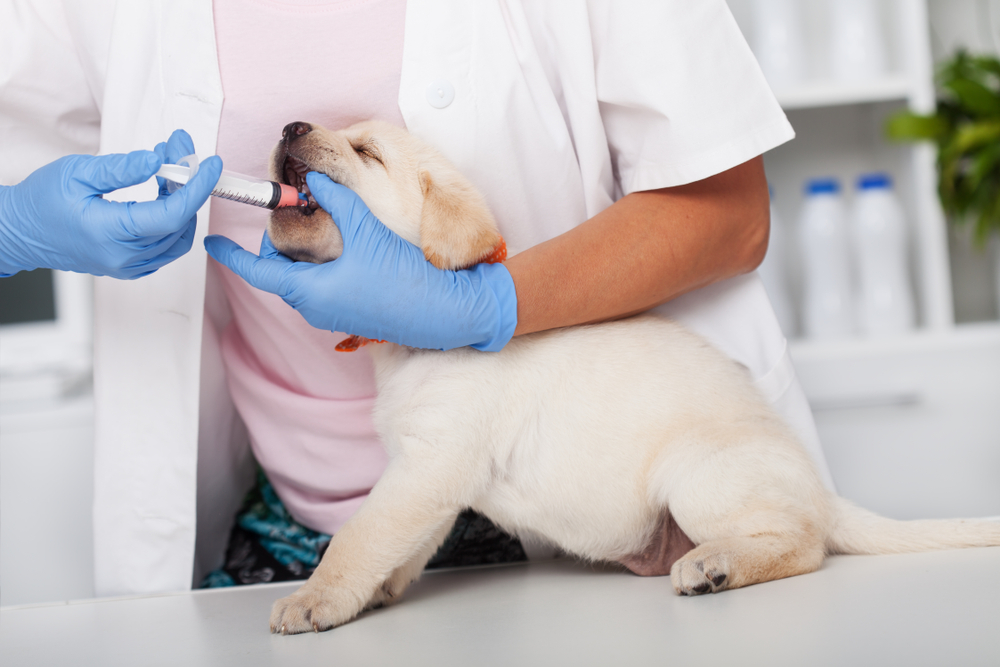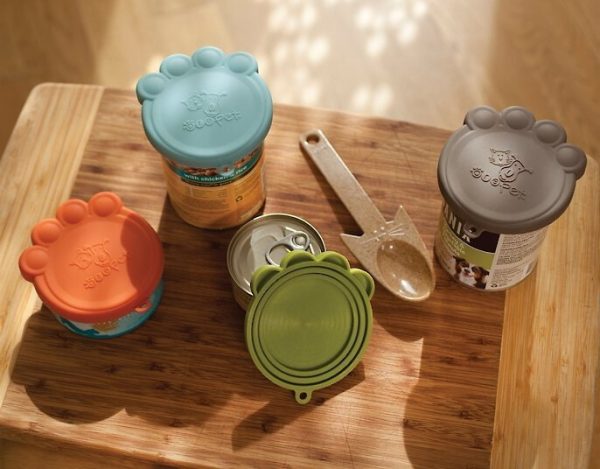In this article
View 4 More +Puppies are a lot like human babies in that you have to feed them several times daily, take them to the doctor regularly, and teach them how to navigate their world. One job that we have to do with puppies and not human babies is to get on top of deworming them. In reality, some puppies are born with worms, and they typically get them from their mothers. That makes proper parasite control imperative to give them a good start in life.
If your dog just had a litter and her puppies have or end up getting worms, it’s not necessarily a reflection of being a bad owner. Many adult dogs show no signs of being infected, so a mother dog may pass worms onto her litter without you knowing she’s even infected. This is a reason annual exams are vital for your pet’s health and quality of life.
This is even more important when you are planning to breed your dog. Worms in puppies can be a different story because of their age and stage of development, so ensuring the mother dog is worm-free during pregnancy is paramount in ensuring her puppies are worm-free on arrival.

Types of Worms Dogs Can Get
Worms are essentially internal parasites. Many worms are intestinal, inhabiting the gastrointestinal tract, but others e.g. heartworm and lungworm affect the cardiovascular systems. The four main worms that dogs contract are:
- Roundworms (ascarids)
- Hookworms
- Tapeworms
- Whipworms
The first three are potentially zoonotic, meaning people can get them from their pets, although tapeworm transmissions are thankfully rare. If infected, children, seniors, and those with compromised immune systems are the most vulnerable. Nevertheless, this possibility underscores the importance of good hygiene and veterinary care.

How Puppies Get Worms
Newborn puppies that have worms can only have acquired them from one place; their mother. Unfortunately, the larvae of some worms, namely the roundworm Toxocara canis, can pass through the placenta, causing puppies to be born with them. They can also get them through her milk when nursing. The next question you may have is how did she get them?
Worms, in their various life stages, are ubiquitous in the environment. They exist in the soil, feces of infected animals, and wildlife.
Dogs that spend a lot of time outdoors are particularly at risk, though any dog can pick up worms through ingestion of their infective stage. Digging is an unwanted behavior that can increase your pup’s chances of getting worms. Fleas are another potential source, because fleas are an intermediate host of the dog tapeworm, Dipylidium caninum. The pup becomes infected when it ingests the insects while grooming. Other canine tapeworms, such as Taenia species, use rodents, birds, or rabbits as an intermediate host.
Pets can get heartworm from a bite from an infected mosquito. Lungworm is acquired through the ingestion of an infected slug or snail. The risk of exposure is nearly impossible to avoid in some areas, warranting year-round prevention.

How Do I Know if My Puppy Has Worms?
The signs of worms are often evident in young canines, with one of the biggest red flags being a distended belly. However, other indications include the following:
- Diarrhea
- Loss of appetite
- Lack of growth
- Weight loss
- Vomiting
If your dog is showing any of these signs, we recommend speaking with a vet.
If you need to speak with a vet but can't get to one, head over to PangoVet. It's our online service where you can talk to a vet online and get the advice you need for your dog — all at an affordable price!
The stickler with worms is that many adult pets don’t show any signs of a problem. The issue with puppies is their age and vulnerability. There’s a good reason why worms are called parasites. They rob nutrition from a growing animal, inadvertently acting as their host. That can compromise the pup’s development and quality of life.
You may see tapeworm segments (proglottids) in your pup’s feces. They look like small grains of rice and may be seen around your pup’s bottom. When your vet orders a fecal exam, they are looking for eggs or other evidence of parasites. However, they don’t always catch them with one test. It depends on whether the dog is shedding eggs at the time the test is run.
That’s why your vet may request a pooled sample (a small sample taken every day and pooled together) if your pet is symptomatic.

Treatment of Worms
The treatment of worms depends on the type. However, the Companion Animal Parasite Council (CAPC) recommends starting deworming puppies at 2 weeks and repeating the process every 2 weeks until they’re 8 weeks old when broad-spectrum anti-worming medications can be given.
Fortunately, many canine heartworm preventives will also treat intestinal parasites. Products vary in which ones they can prevent. We suggest discussing the timing and the choice of medication with your vet based on your pet’s risk, age, and weight.
Preventing Worms
Year-round heartworm prevention is the best way to safeguard your pup against internal parasites. It couldn’t be easier to administer. Manufacturers make these meds palatable so that it’ll just seem like another treat your dog gets for behaving. However, annual examination and testing is imperative for adults to rule out any pre-existing conditions before starting the preventive.
It is recommended that you provide your vet with your dog’s fecal sample four times a year to ensure they are clear of intestinal parasites. Breeders should also screen their dogs before breeding them and maintain pregnant and nursing female dogs on broad-spectrum control products.
We also recommend cleaning up after your dog to prevent spreading parasites to other pets and humans.


Final Thoughts
Some puppies start life with worms that they get from their mothers. Luckily, it’s easily managed with early intervention and repeated deworming. It will give your puppies a better start in life without the burden of intestinal parasites.
Then, their little bodies can keep their energy for their own growth and development rather than the growth and development of parasites.
Featured Image Credit: BAUER Alexandre, Shutterstock



















